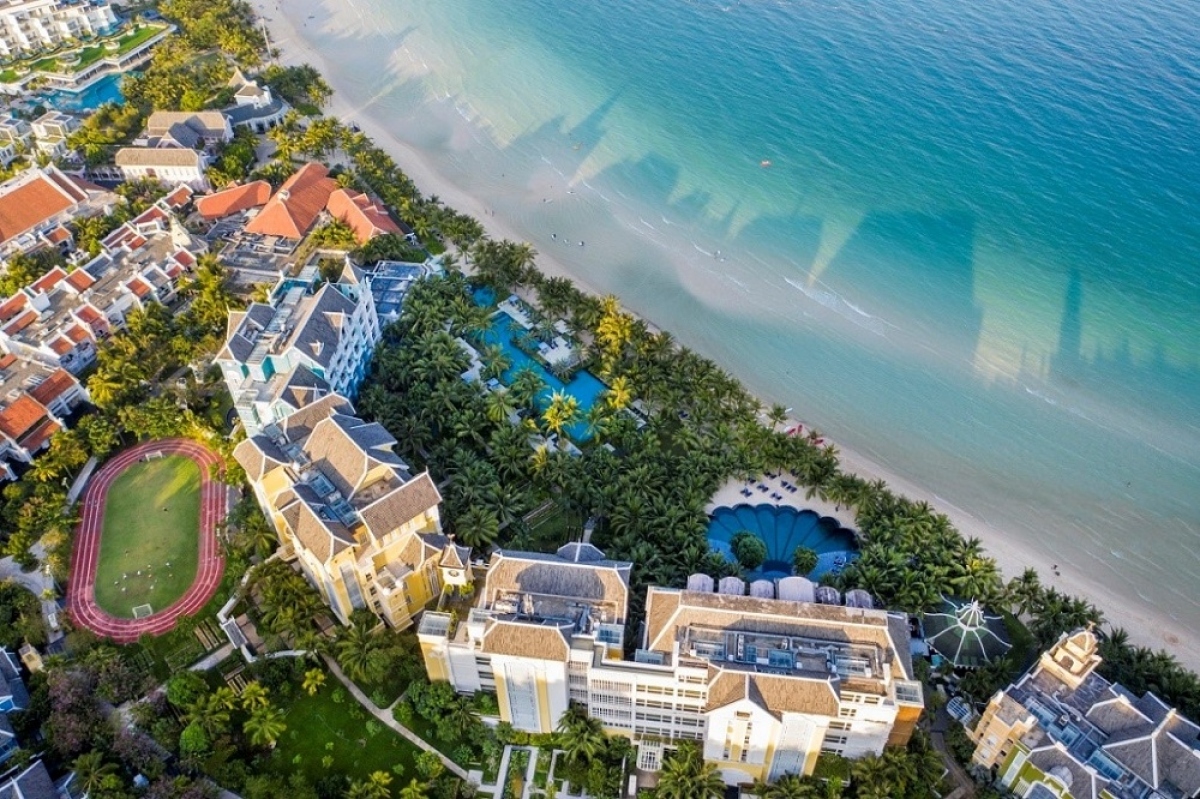Strategic investors’ engagement helps promote Vietnam’s tourism growth
The investment of domestic and foreign investors in tourism infrastructure, especially resort real estates, poor rural areas have been turned into enchanted destinations for tourists, making Vietnam more attractive to investors.
Boasting 3,260km of coastline with about 400 beaches and thousands of natural landscapes and relic sites across the country, Vietnam is an ideal place for strategic investors such as SunGroup, Vingroup, FLC and VinaCapital.
Many modern hotel chains meeting international standards have been built, mostly in popular tourist attractions in Hanoi, Da Nang, Nha Trang, Phu Quoc, Ho Chi Minh City and Ha Long.
Meanwhile, many reputable international brands such as Accor, Mariott, Hyatte, IHG, Four Seasons, and Archipelago have marked their presence in Vietnam, contributing to enhancing the governance capacity and tourism service quality of the country.
According to Dr. Phan Huu Thang, former Director of the Foreign Investment Agency under the Ministry of Planning and Investment, foreign direct investment (FDI) in tourism and resort real estate has been helpful for Vietnam right from the first years of opening and integration, with the development of a system of high-end resorts and hotels.
In the recent 20 years, investment in tourism accommodation has boomed. According to the Vietnam National Administration of Tourism (VNAT), the number of accommodations in Vietnam increased from 12,500 facilities in 2010 to 33,330 in 2022, with 667,000 rooms. As of the end of 2022, Vietnam had 215 five-star hotels with 72,000 rooms, and 334 four-star hotels with 45,000 rooms.
Statistics from the Vietnam Real Estate Association (VNREA), the country is home to 239 tourism real estate projects with a total value of VND681.8 trillion, or about US$30 billion.
Su Ngoc Khuong, Senior Director of Savills Vietnam, said that despite impacts of the COVID-19 pandemic, the tourism real estate in Vietnam is still an attractive segment for investor, where they can find previous opportunities to join the Vietnamese market.
In reality, amid difficult situation of the real estate sector, foreign investors, especially those from the Republic of Korea, Japan, Singapore, and Hong Kong (China), have still shown great attention to resort real estate, especially in the south central coastal region. Many big names such as Mandarin Oriental, JW Marriott, M Gallery, Le Meridien, Wink Hotels and The Ascott Limited are likely to launch their projects in the region.
According to CBRE, Da Nang drew additional 10 projects as of the end of 2022. Binh Thuan expects about more than 5,000 vacation villas by 2025, while Phu Yen will provide more 72 villas and hotel rooms to the market by 2026. Experts held that in 2024, the accommodation occupation rate will recover to the pre-pandemic level of 63%.
According to Ha Van Sieu, Vice Director of the Vietnam National Administration of Tourism (VNAT), this year, the tourism sector aims to serve about 8 million foreign visitors and 102 million domestic tourists, earning about VND650 trillion (US$27.71 billion).
The sector plans to announce the Vietnam tourism planning for the 2021-2030 period with a vision to 2025 right after it is approved. It has implemented a marketing strategy until 2030, along with a project to strengthen the application of new technologies in developing smart tourism and turning tourism into a spearhead economic sector of the country. A community-based tourism project is also underway, said Sieu.

